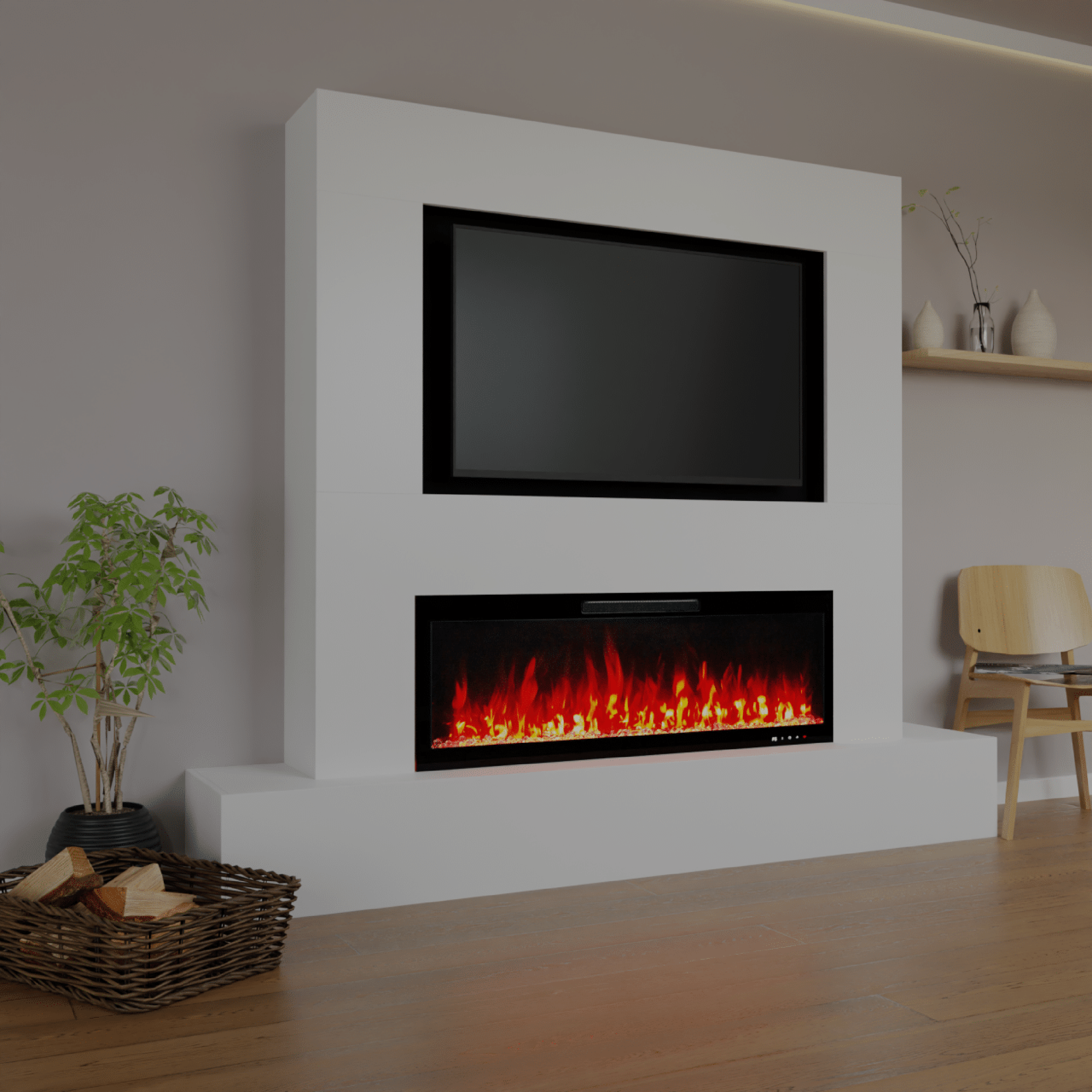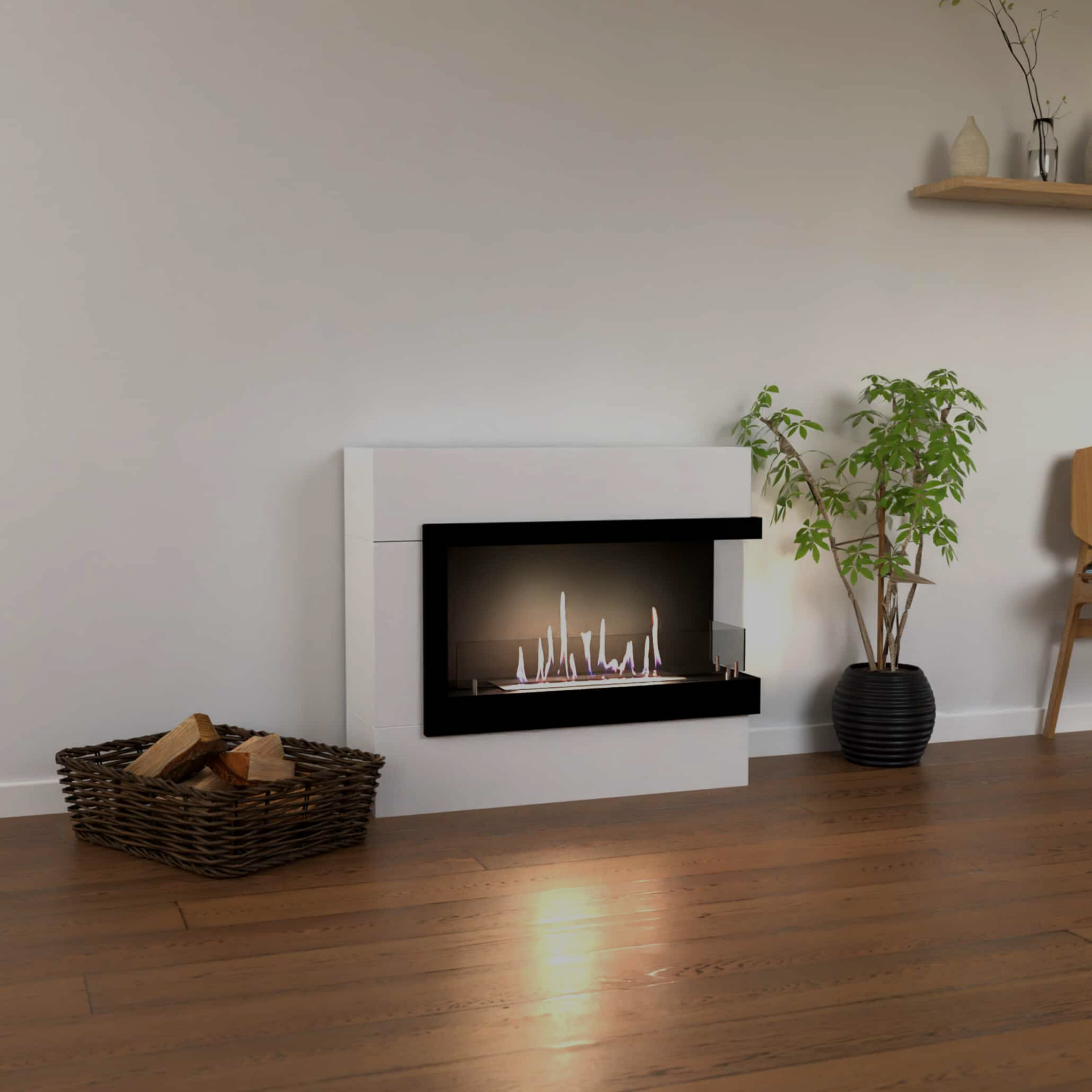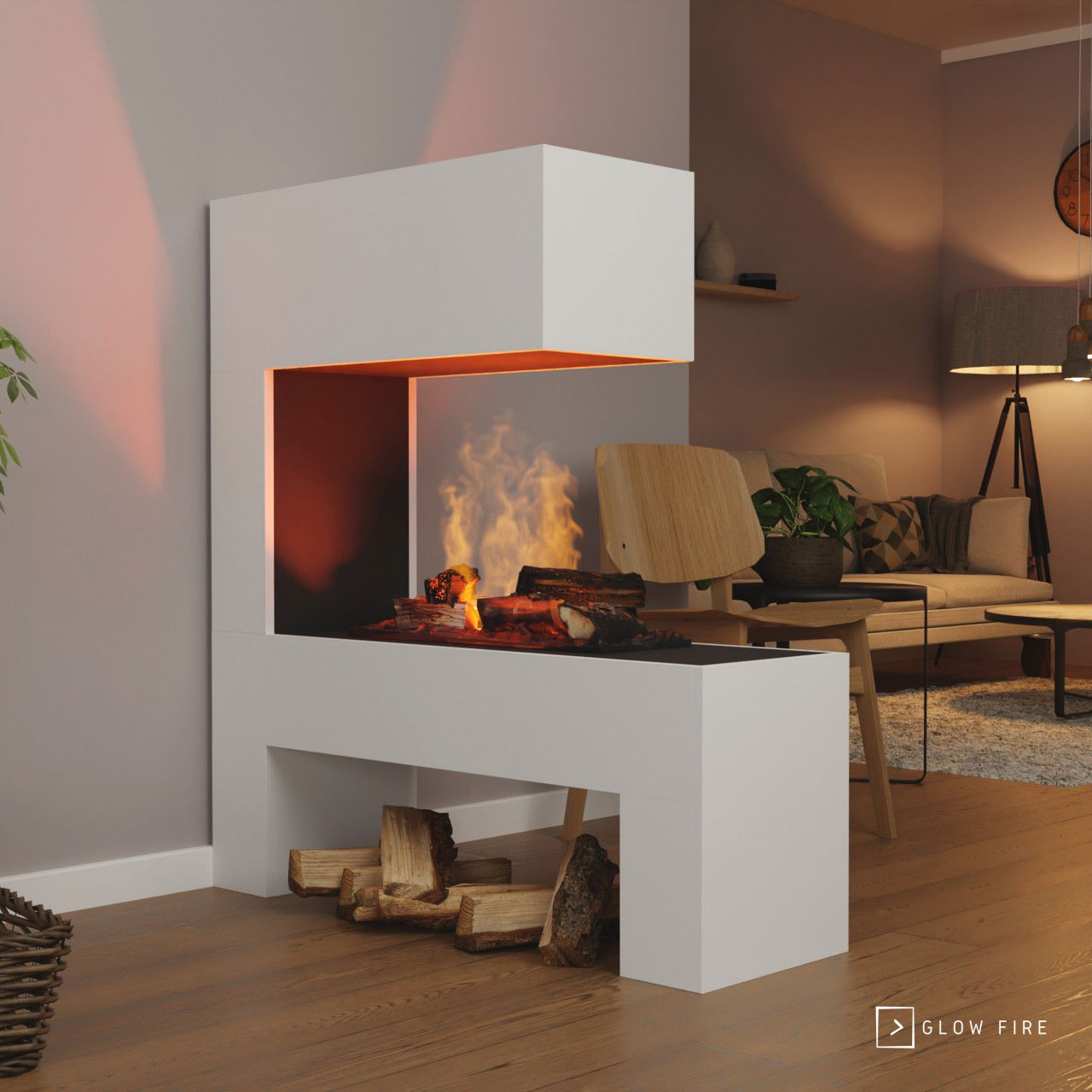Introduction: Electric fireplaces as a modern alternative
Electric fireplaces have become a popular alternative to traditional wood-burning or gas fireplaces in recent years. They offer the ambiance of a real fire without the need for complicated installation or handling of fuel. Before choosing an electric fireplace, however, you should weigh the pros and cons to ensure it meets your needs.
Advantages of an electric fireplace
Electric fireplaces offer numerous advantages that make them particularly attractive for modern households:
- Easy installation: Electric fireplaces require no complicated installation, no chimney, and no special permits. They simply need a power outlet and are ready to use.
- No smoke and no emissions: Since there's no real fire burning, there's no smoke and no harmful emissions. This makes electric fireplaces ideal for indoor use and environmentally conscious users.
- Low maintenance: Unlike traditional fireplaces, which require regular cleaning and maintenance, electric fireplaces are virtually maintenance-free. There's no ash to dispose of and no fuel supplies to manage.
- Flexibility in design and placement: Electric fireplaces are available in a variety of designs and can be installed in almost any room. Whether wall-mounted, built-in, or freestanding—the options are endless.
- Security: Since no real fire is used, there's no danger from flying sparks or open flames. Electric fireplaces are therefore particularly safe, even in households with children or pets.
- Cost savings: Without the need to purchase fuel and with comparatively low power consumption, electric fireplaces are a cost-effective alternative to traditional heating methods.
Disadvantages of an electric fireplace
Although electric fireplaces offer many advantages, there are some disadvantages that you should consider:
- No real flame: Although modern electric fireplaces produce very realistic flame effects, they don't actually create a real flame effect. For some people, this leaves them with a lack of the authentic fire experience.
- Limited heating capacity: Electric fireplaces generally offer less heat output than traditional wood or gas fireplaces. They are more suitable as a supplemental heat source, not as the primary heating source for larger rooms.
- Dependence on electricity: Because electric fireplaces are powered exclusively by electricity, they cannot function during power outages. This can be a disadvantage in regions with frequent power outages.
- Higher operating costs during continuous operation: Although the power consumption of an electric fireplace is relatively low, the operating costs can still be higher if used continuously, especially compared to fireplaces that run on inexpensive wood or gas.
Conclusion
Electric fireplaces are an excellent choice for those who want to enjoy the ambiance of a fireplace without the complexity and maintenance of a traditional fireplace. They offer numerous advantages, particularly in terms of safety, ease of maintenance, and flexibility. However, you should also be aware of the disadvantages, particularly lower heat output and dependence on electricity. Considering these factors will help you decide if an electric fireplace is the right choice for your home.
















